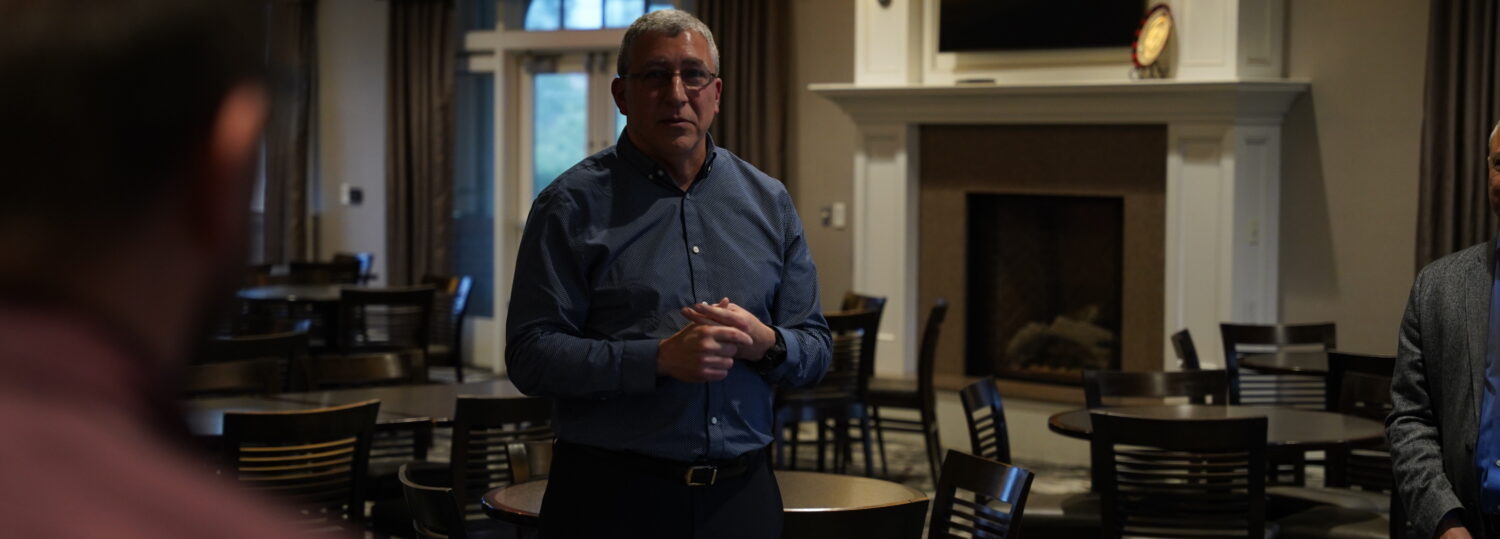NC State University’s Department of Mechanical and Aerospace Engineering (MAE) will soon honor alumnus and longtime supporter Basil Hassan with the naming of its high-speed laboratory in the MAE West Annex. Hassan, a distinguished aerospace engineer and NC State graduate, has made a significant gift to the department, furthering his commitment to advancing aerospace education and research.
The newly named high-speed lab, which houses the department’s hypersonic and supersonic wind tunnels, will bear the Hassan name, marking another milestone in Hassan’s legacy of philanthropy. The lab’s formal title is still being finalized in collaboration with department leadership, but it will reflect its critical role in aerospace research.
This gift continues Hassan’s deep ties to NC State and the aerospace program, which were first established by his father, Hassan A. Hassan. A pioneering figure in NC State’s aerospace engineering program, the elder Hassan helped lay the foundation for what is now one of the leading aerospace programs in the country. Through past philanthropic efforts, the Hassan Family has established scholarships, a lecture series, and other funds to honor his father’s contributions. Now, he is making his own mark by naming the high-speed lab.
“I wouldn’t be here today if it wasn’t for what I received from NC State,” Hassan said. “This is my time to give back, and this is my time to ensure that hypersonics at NC State is successful.”
A Passion for Aerospace
Hassan’s journey in aerospace engineering began in childhood, inspired by his father’s work and experiences such as attending the 75th anniversary of the Wright Brothers’ flight in 1978. As a student at NC State, he immersed himself in hands-on experiences, including working in the low-speed wind tunnel, contributing to the AIAA student section, and collaborating with faculty mentors who shaped his future.
During his academic career, Hassan interned at NASA Langley Research Center, where he spent multiple summers conducting research. “That was a really great program because it gave us the opportunity to work on real-world problems alongside NASA engineers,” he said. “It ideally prepared me for a career at a national lab like Sandia.”
A Lasting Impact
Now a leader at Sandia National Laboratories and a past president of AIAA, Hassan remains committed to ensuring future aerospace engineers have the same opportunities he did. His philanthropy has primarily supported hands-on student experiences, funding aerospace projects, conference travel, and essential equipment.
“I want the students of today to experience the same thing I have, because they will ultimately see how it will have a positive impact on their professional careers,” he said. “The high-speed lab will allow students to better understand the physics behind hypersonic flow, which is critical for making future aerospace systems safe and effective.”
As the aerospace industry continues to evolve, Hassan sees NC State as a key player in future research and education. “The Research Triangle area has unique capabilities across aerospace, mechanical systems, controls, and computing,” he said. “NC State’s ability to integrate these disciplines makes its future in aerospace engineering incredibly bright.”
With this latest gift, Hassan continues to support the next generation of aerospace engineers while strengthening the foundation his father helped build. More than just a name on a lab, his contributions will provide students with critical resources to innovate and lead in a rapidly advancing field.
“This is about creating opportunities,” Hassan said. “Thirty years from now, I hope to see students who benefited from this support excelling in their careers and saying, ‘That experience made a difference for me.’ That’s what really matters.”
